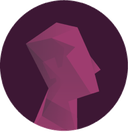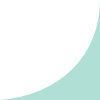Dialogue
The Patient Perspective Program (PPP) was founded to build a bridge between the world of Oncode researchers and the world of (former) cancer patients. This program has also brought the worlds of Inge Reus (ex-patient) and Antoinette van Weverwijk (postdoctoral fellow) together. What makes the PPP so valuable in their eyes?

Inge Reus
Patient expert, Personal assistant
Antoinette van Weverwijk
Postdoctoral fellow, Netherlands Cancer Institute (NKI), Karin de Visser lab



Give the patient's voice a role

Both of you have been involved in the Patient Perspective Program since its initiation in 2019. How did you first come into contact with it?
Inge: I was undergoing treatment at the Antoni van Leeuwenhoek hospital in 2018 and was introduced to Oncode Institute there during an information evening. We were given information about the PPP and researchers explained their work. I immediately noticed that they spoke a completely different language than I did, but nonetheless, my interest was piqued that evening. And my interest was rewarded: I was allowed to join Karin de Visser's breast cancer group. Shortly after, I met Antoinette.
Antoinette: I had already gained some experience with patient communication during my PhD in England. I considered that to be very valuable and wanted to continue doing that during my postdoc. Coincidentally, shortly after I started at NKI, Karin de Visser was asked if she wanted to participate in the PPP. She forwarded the question to me. We have been involved together since the beginning; Karin in the background, me in regular contact with patients. Inge and I have been a "PPP couple" for 3 years now.
"My interest was piqued that evening. And my interest was rewarded."

Why do you believe it is important to participate in this program?
Inge: For me, there are two main reasons: first, I would like to see more attention towards fundamental research. Many researchers spend almost an equal amount of time finding sponsors as they do answering their research question. That has to change. Patients and patient organizations often have an enormous network that they can use to support researchers in this. I also think it is very important to give the patient's voice a role in this fundamental research. We need to learn to speak each other's language more.
Antoinette: That's going better and better, isn't it!
Inge: Yes!
Antoinette: I find it important to be able to explain my research to anyone who is interested, including those who are not in the scientific community. It feels like a duty for me to be transparent about my research to patients. It also provides me with a focus. I sometimes get so caught up in my research that I almost forget to think about the bigger picture. But when I explain my research to patients, it shifts my attention back to the ultimate goal: why are we actually doing this? Especially in fundamental research, it is essential to keep explaining this because this type of research really contributes to knowledge about cancer biology and ultimately lays the foundation for the development of new or improved treatments.
Inge: Yes, I especially found through the PPP, that it's not only the doctors who saved my life, but also science. So I feel very honoured to take part in this program, and I think it is very valuable to share my experiences as a patient with researchers.
Antoinette: Yes, for example with taking biopsies. Every researcher knows that a biopsy is not pleasant, but still thinks "I need it in order to be able to answer my research question''. It was only when I was in close contact with patients through the PPP that it really dawned on me how stressful biopsies really are for patients. Inge told me how painful and emotionally taxing it is - especially if you have just been diagnosed. Since then, I give much more thought to the materials we use in our research and look for alternative and less invasive ways to answer research questions. So in a way, the contact with patients has also made me more creative.
Inge: The irony is that I might have said 'yes' to participating in a certain study - for which 8 biopsies had to be taken - if I had known better what the study was actually contributing to. I think it's because the contact with researchers gives me hope and confidence. I see how driven they all are, and how intensely they work every day to find solutions. That really motivates me to contribute to science myself as well.
Antoinette: That is surely a beautiful result of communication between scientists and (former) patients!
Inge Reus
What does the ideal collaboration between researcher and patient look like in your eyes?

Inge: For me, it means that patients can share their experiences and insights, and that it motivates scientists to do their research. Likewise, scientists should also be able to indicate their needs to patients; that way you learn to understand each other's language and worlds better. I think it is essential that this interaction is included in the curriculum from the beginning of certain studies. Students should be taught that "you are doing it for the patient, so think about what is important to them and what is going on in their situation." I would even advocate having students spend a day with patients so that they see that cancer is more than just "damage to your DNA." It leaves a mark on a person's life.
Antoinette: A patient can tell you very different things than a scientific paper. In their role as experience experts, they can really motivate you, enthuse you and lead you to new insights. Talking to Inge about symptoms, side effects and treatments constantly makes me stop and reflect, also with regard to my future in science. In addition, research can be complicated and frustrating, for example when your Western Blot fails for the fifth time in a row. Then, those conversations can really help to be reminded of what I’m actually doing it for. It often inspires me to continue my research with fresh energy.
Inge: I want to mention that it may not be for every patient to have such intensive contact with researchers.
Antoinette: No, and the same goes for researchers. Some may find it confrontational or difficult, and I understand that. But there are plenty of other ways to engage with patients' perspectives, also within Oncode's broader Patient Engagement Program (PEP). For example, you can organize short presentations for small groups of patients who can ask questions afterwards. You'll notice that you’ll get a lot of questions about things you have never thought about at all. You really learn a lot from that, too. I think "the ideal collaboration" is unique for everyone: above all, it is important that there is some form of communication between patient and researcher. Because you can always get something valuable out of it.
Inge: I do want to advocate for more "cross-pollination" between patients and researchers of different types of cancer. I think it's great to make those connections, also internationally. Maybe we'll find out that breast cancer patients in Italy, who eat pasta all day, never suffer from certain side effects that I do struggle with. That would be interesting, wouldn't it! Everyone has their own questions and their own perspectives, but there are also many similarities between patient groups. I think we can definitely support each other in that.
Antoinette: It would also be nice to involve more young researchers in Oncode's PEP. At the moment it's mainly group leaders who participate, whereas it could also have so much added value for the new generations. They are the ones still at the beginning of their careers, building the future, and starting new lines of research. You have to take advantage of that opportunity.
Inge: In my opinion, that too starts during college. Show videos of patients there, have conversations about it during lectures, and allow for an open discussion. Also, convince principal investigators to let their team members spend time on communicating with patients.
Antoinette: Yes, and that really doesn't have to be a huge amount of time. I go for coffee with Inge once every two or three months for an hour. And I really take a lot from that.
Antoinette van Weverwijk
Other than this Patient Perspective Program, what else has the Oncode Institute given you?

Antoinette: Oncode really represents an interdisciplinary community, that brings together people who work on different subjects and have different specialties. By making those connections, you can move forward together. The triangle between doctors, patients and scientists that Oncode organizes in various ways is unique.
Inge: I find it very interesting to see what scientists are working on. As a patient, you often don't know that fundamental research is the basis of what ends up in the clinical practice. At Oncode, I see that those fundamental researchers are working hard every day to crack the code of cancer. That not only gives me confidence, but also a lot of hope.
Is there anything you have accomplished thanks to the PEP that you are proud of?

Inge: We gave two guest lectures to Biomedical Sciences students this year. Both times, we started with the question, "Who thinks patients can make a valuable contribution to fundamental research?". No one raised their hand. After just one hour of sharing our experiences, Antoinette and I had completely shifted their opinions. By then, the majority felt that communication between patients and researchers was indeed important and meaningful. After the lecture, students came to us with many positive and even emotional reactions. I thought that was very special.
Antoinette: That was definitely a highlight for me as well.
Inge: I would truly recommend every patient to participate in this - or a similar - program. It gives me so much energy and positivity when I see what the researchers are working on, and through Oncode Institute I have had many wonderful conversations with fantastic, driven people I would never have met otherwise. This is an opportunity every patient should have!
Credits: interview by Iris Gombert; photography by Marloes Verweij, Laloes Fotografie
Did you like this story?
We have more of these! Please register below to receive our digital magazine 4 times a year and stay up to date on how we are cracking the code of cancer.
